Endometriosis awareness month is still going! Here is a week’s worth of shareable information. Another good link to share is our basic all About Endometriosis that has short and to the point information about endometriosis as well as links for more info. Keep that endo conversation going!
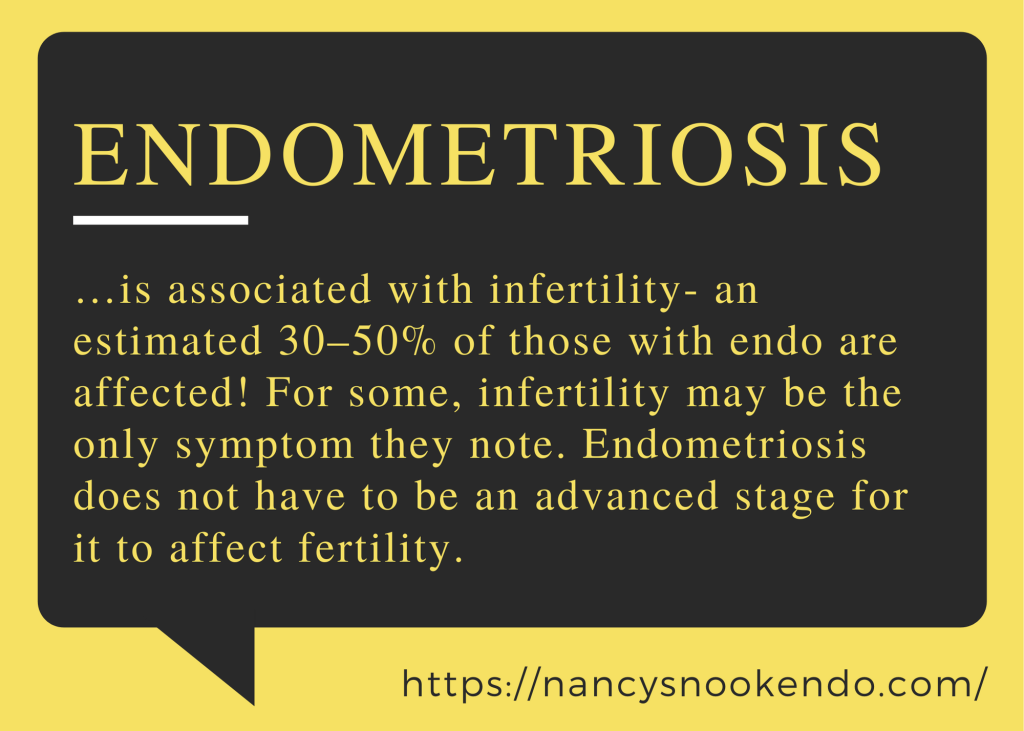
Infertility is strongly associated with endometriosis. https://nancysnookendo.com/learning-library/symptoms/lessons/fertility-issues/ and https://nancysnookendo.com/infertility-links-2/
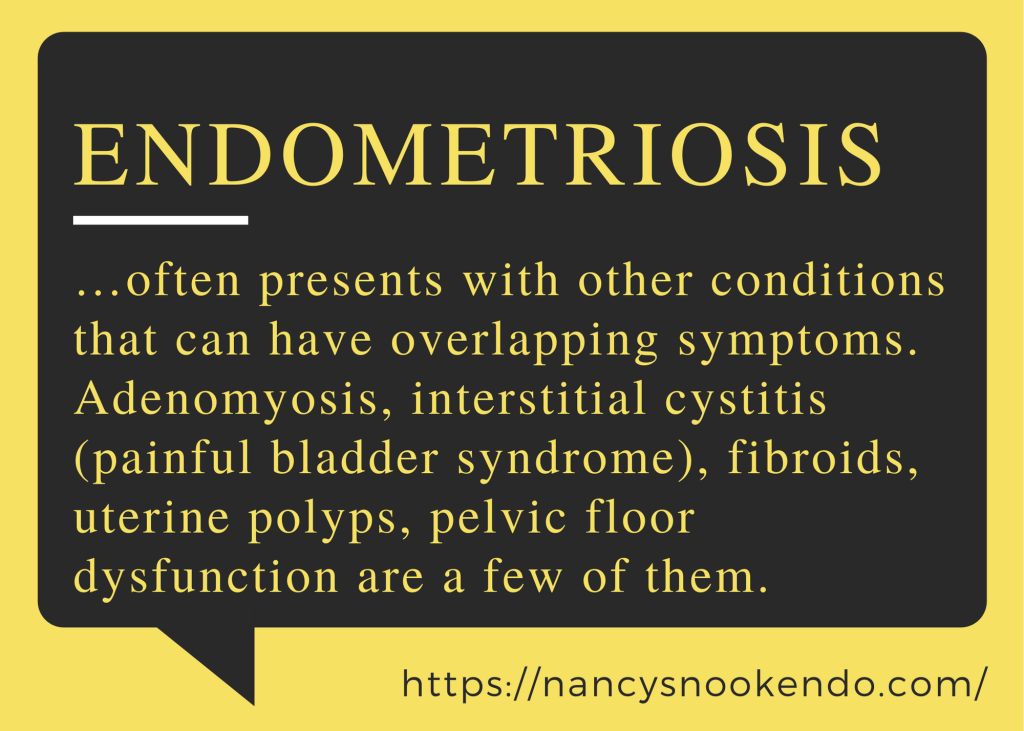
Endometriosis is often found with other conditions that can have similar symptoms. For more info, see: https://nancysnookendo.com/related-conditions/
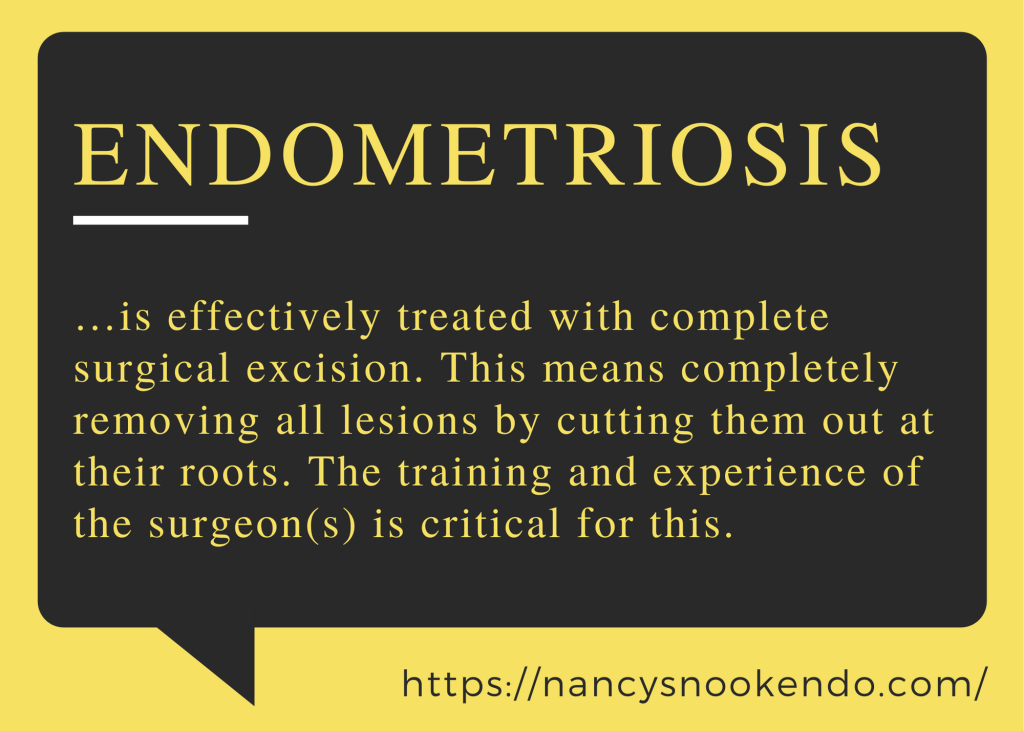
Excision is the surgical removal of tissue by cutting out. It differs from ablation/laserization/burning/vaporizing, which are techniques that use a heat source to destroy tissue. Excision allows for a biopsies to be sent to a pathologist for confirmation, and it better ensures that all of the endometriosis lesion is removed. With ablation, it may or may not reach deep enough to destroy all the endometriosis lesion and it does not allow for pathology confirmation. While ablation may work for superficial endometriosis, it leaves the unknown of whether all of the lesion was truly destroyed. For more info, see: https://nancysnookendo.com/why-excision-is-recommended/ and https://nancysnookendo.com/why-see-a-specialist/
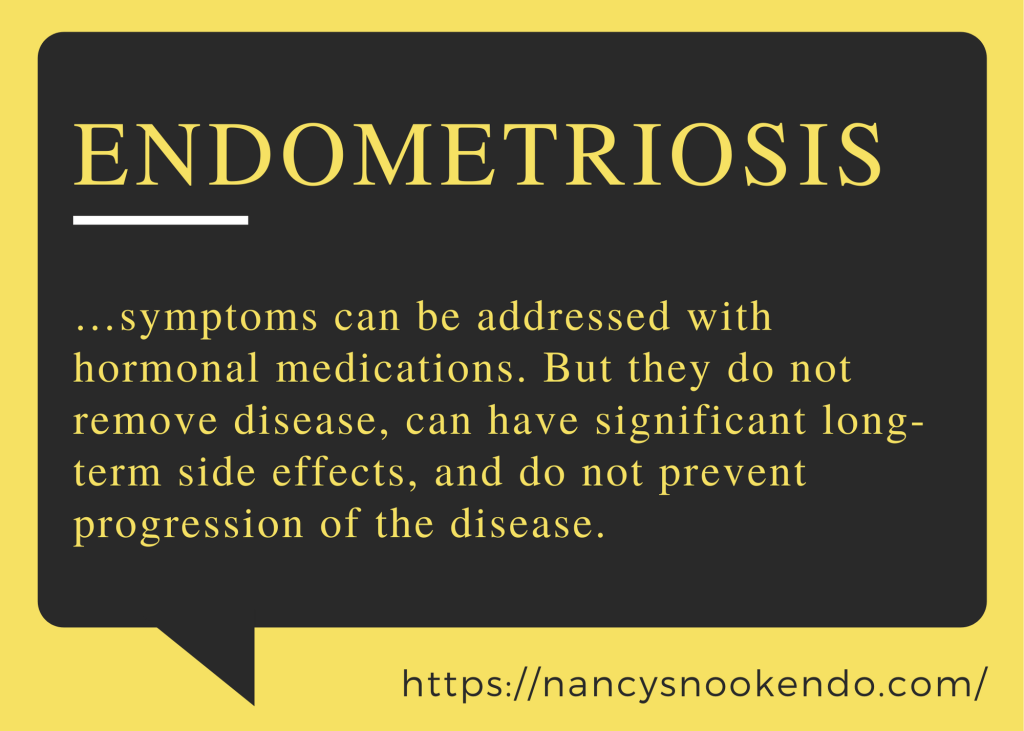
Hormonal treatments, while they can relieve symptoms, do not get rid of the disease itself. Symptoms often return rapidly once medications are stopped. Hormonal medication may not stop the progression of disease- this is particularly important where the ureters and/or bowel are involved. Endometriosis lesions are different from normal endometrium (the lining of the uterus), therefore some people’s endometriosis does not respond to progestin therapy. For more info, see: https://nancysnookendo.com/hormonal-medications/
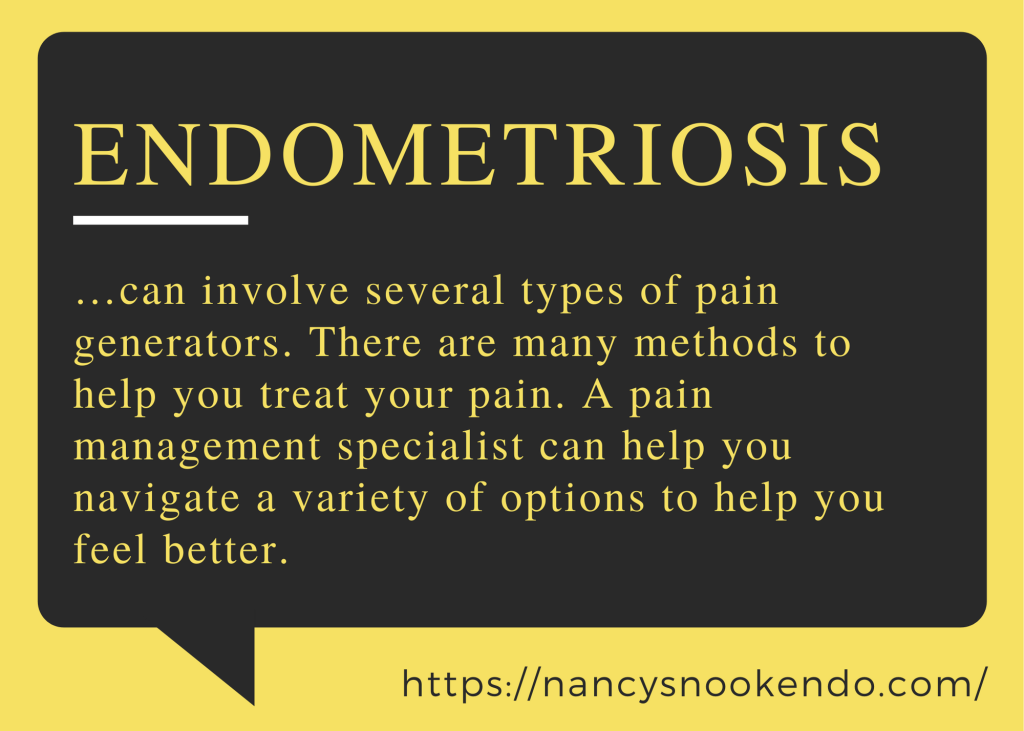
Different medications can be used to help alleviate chronic pelvic pain and other related conditions. Alleviate does not necessarily mean eliminate. As long as endometriosis lesions are present, irritation to muscles and nerves that can cause pain will continue. Addressing the underlying problem is important for long term goals. It is also important to address other pain generators, such as pelvic floor dysfunction or interstitial cystitis/bladder pain syndrome. For more info, see: https://nancysnookendo.com/pain-medications/ ; https://nancysnookendo.com/a-quick-guide-to-pain-control/ ; https://nancysnookendo.com/pain-management/
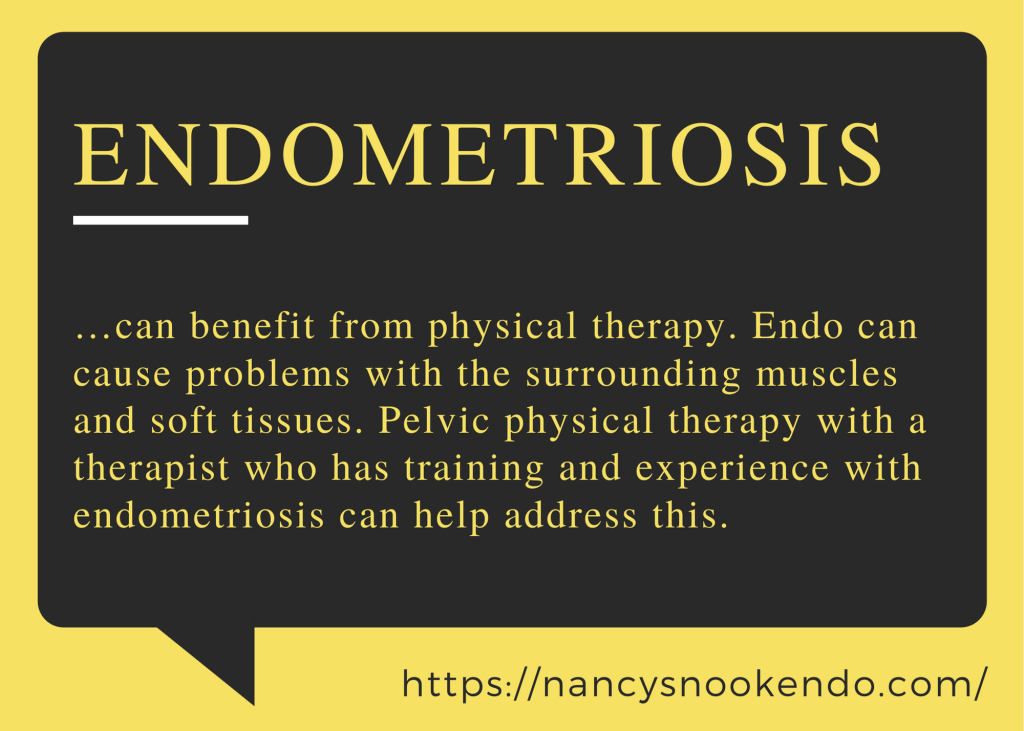
Endometriosis can cause problems with the surrounding muscles and soft tissues. Pelvic floor spasms, tight muscles, other myofascial changes, and more will often contribute to symptoms (such as pain with defecation or pain with sex). These muscular and soft tissue changes can benefit from pelvic physical therapy. However, appropriate therapy for endometriosis associated problems requires a specific skill set by your physical therapist. For more info, see: https://nancysnookendo.com/pelvic-physical-therapy/ and https://nancysnookendo.com/physical-therapy-resources/
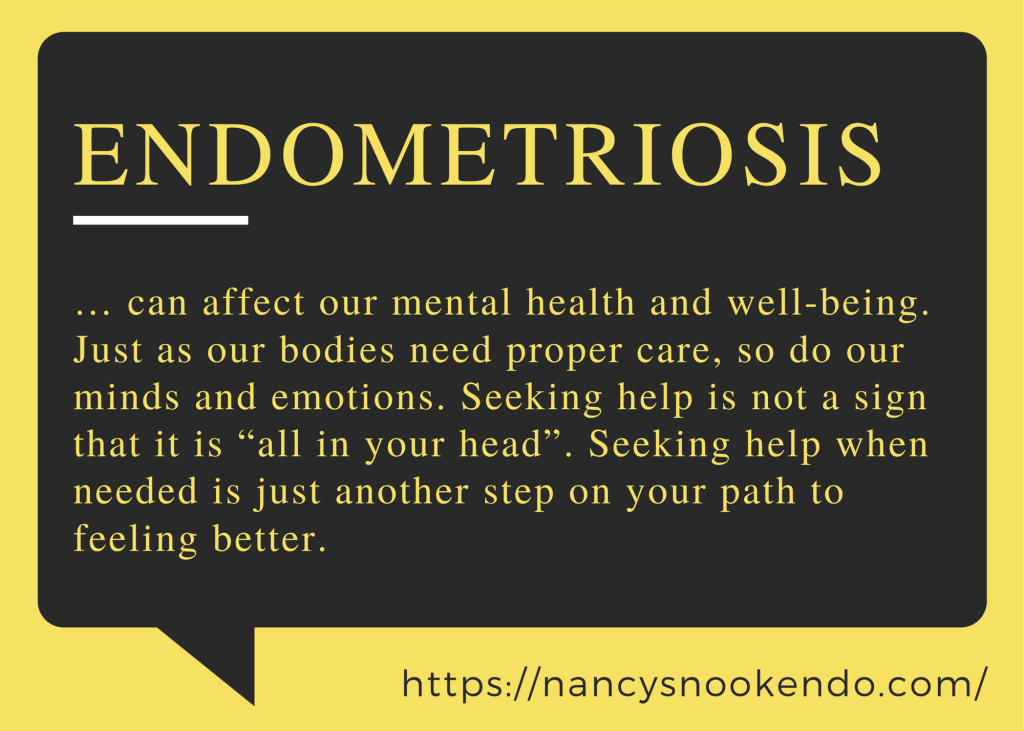
Symptoms from endometriosis, such as pain and fatigue, can impact an individual’s quality of life significantly. This can affect our mental health. Proper treatment for the underlying cause of symptoms can help, but years of symptoms, such as pain or infertility, can create a toll. Seeking care for your mental health is not a sign that your endo is “all in your head”- rather it is another tool to help your overall well-being. For more info, see: https://nancysnookendo.com/the-importance-of-mental-health-support-in-endometriosis-2/ ; https://nancysnookendo.com/mental-health-overview/ ; https://nancysnookendo.com/choosing-the-right-mental-health-therapist-2/

